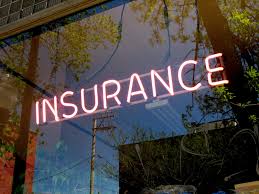
Getting the right amount of liability insurance is essential for your financial stability. There are many things to know about liability insurance. In this article we will discuss some liability insurance facts, such as coverage limits, deductibles, and exclusions. You can also read up on some common types of coverage. These include Homeowners, Errors and omissions, Directors and officers, and General liability policies. You can also use these facts to compare policies and find the best coverage for you.
General liability
If you’re wondering what liability insurance is, you’ve come to the right place. Liability insurance is a part of the general insurance system and protects the purchaser from lawsuits or similar claims. You may be sued because of a product or service you sold, but liability insurance protects you from these risks. Find out the basic facts about liability insurance below and learn more about it today. Also, make sure to get the coverage that meets your specific needs.
Errors and omissions
Errors and omissions insurance covers costs for lawsuits arising from professional mistakes. While a Business Owners Policy may provide some protection, it is not enough. Errors and omissions insurance is a vital component of liability insurance, and is also required by some regulatory boards. Real estate agents, for example, must show proof of E&O insurance to their state licensing board before receiving their license.
Directors and officers
While directors and officers may not be required by law to purchase their own liability insurance, many companies do, and even if they don’t, they can be exposed to large coverage gaps. Fortunately, directors and officers liability insurance has several benefits and can help you navigate lawsuits and negotiate settlements. It can also save you time and money by covering expenses that arise when a lawsuit is filed against you. For example, directors and officers liability insurance can help protect you from claims related to workplace health and safety, environmental pollution, and consumer protection. Additionally, it can cover claims related to corporate and securities law.
Homeowners
The basics of homeowners’ liability insurance include covering medical costs for visitors, pain and suffering, lost wages, death benefits, and legal expenses. While most homeowners policies come with this coverage, you need to know that it has limits. These limits can be low enough that you aren’t covered if something happens on your property, but if you rent out your home frequently, you may want to consider upgrading your coverage. The Insurance Information Institute recommends at least $300,000 in liability coverage.
Umbrella coverage
Umbrella coverage in liability insurance provides additional liability protection in the event your other policies aren’t sufficient. This is commonly covered in injury law as you can see from the lawyers you can talk to when you click here. If you’ve been sued for a wrongful act, this extra coverage will pay out if your other policies’ limits aren’t enough. Umbrella policies are written over your existing liability policies, and their limits drop down once your primary policies’ limits are exhausted. They offer additional protection against some claims that aren’t covered by your underlying policies, and they are usually written as self-insured retention policies.
Which One Do You Get?
Since having liability insurance is a matter of security and protection for business owners, how do you know which one you should get?
To aid you with your choice, here are some useful tips for finding suitable liability coverage:
- Start by assessing your business’s specific risks and liabilities. Consider the nature of your industry, the services you provide, and potential areas of exposure, like a significant reliance on digital infrastructure that may be breachable. This initial evaluation will help you determine the types of liability coverage you require.
- Choose liability insurance that aligns with your business’s size and potential growth. Policies should scale to your evolving needs as you expand.
- Evaluate the claims history of potential insurers. A company with a strong track record of handling claims efficiently and fairly can save you a lot of trouble when you need to tap into your coverage.
- Obtain quotes from different insurance providers to compare coverage options, premiums, and terms. Don’t solely focus on the cost; consider the value and extent of coverage offered.
- Carefully read the terms, conditions, and obligations stipulated in the policy. Complying with these conditions is essential to ensure your coverage remains valid.
- Regularly review your liability insurance policy to ensure it provides adequate coverage. After all, business opportunities, needs, and risks can change over time.
Remember that liability insurance is a vital component of protecting your business. Taking the time to research, understand your specific needs, and consult with experts can help you make an informed decision and get the security you need.